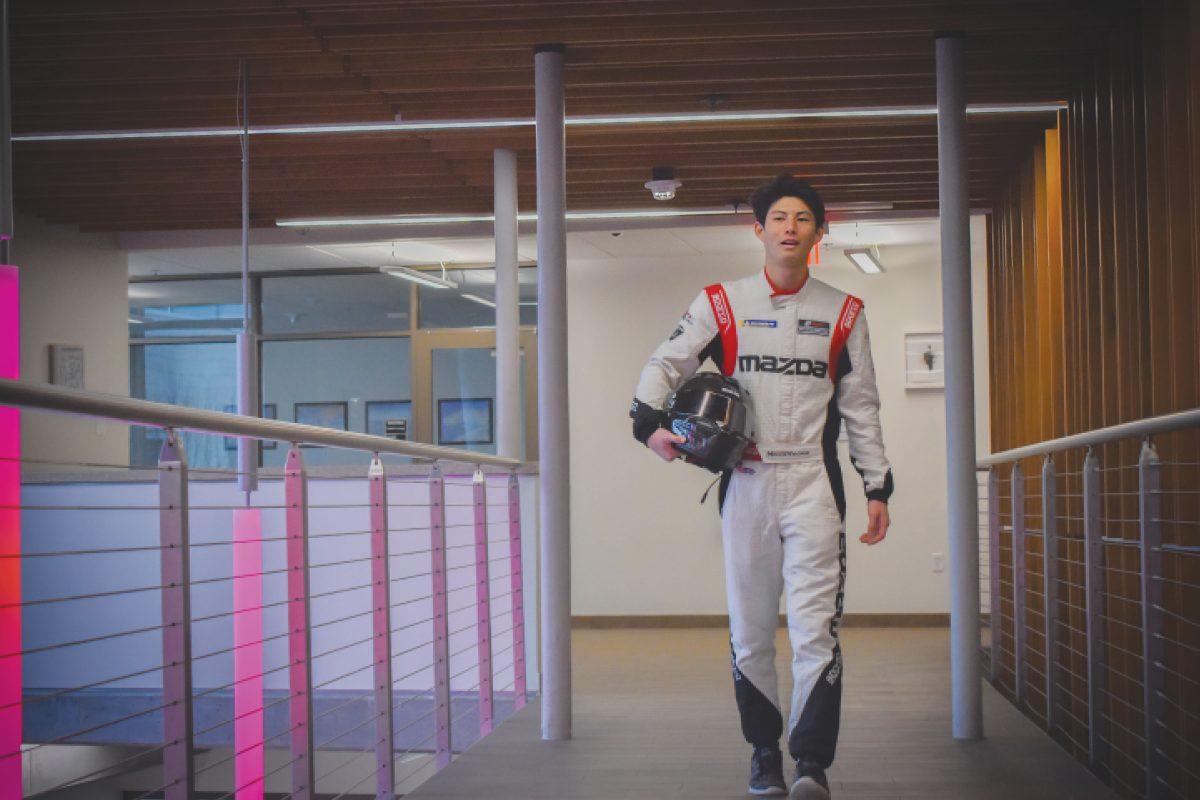
Global business junior Nicholas Reger won the Global MX-5 Cup in 2018, four years after his racing debut. Photo by Anna Phengsakmueang | Mercury Staff.
A UTD junior has aspirations to become a professional race car driver —
and has already made strides towards his dream.
Nicholas Reger, a global business major, won the Global MX-5 Cup in 2018,
winning a Mazda scholarship worth $200,000. Previously, in 2014, he was the
Texas Teen Mazda Challenge Champion at the age of 16. He is currently under a
contract with Mazda Motorsports, which is the North American arm of the Mazda
Motor Corporation that specializes in auto racing. Reger said he chose to
pursue a degree in global business because a large part of racing involves
international business with manufacturers around the world.
“I’ve met Japanese engineers for Mazda and German engineers from
companies like Mercedes and BMW. Doing business with this kind of
(international) mindset has been incredible for me,” Reger said. “I believe
that a degree here (at UTD) in global business could eventually guide me in the
right path and help open some doors in some racing worlds that a typical race
car driver that didn’t go to college would be able to do.
Last year, the MX-5 Cup took place between March and November. This year,
Reger’s season started in January and will end sometime in October, with the
finale taking place in Atlanta. The finale consists of an endurance race, which
typically last anywhere from an hour and 45 minutes to three hours long and
consist of two drivers. Reger’s brother, Timo, is his co-driver. They average
around 100 miles an hour. Halfway through the race, they switch seats.
“You have to focus on surviving,” Reger said. “If I’m thinking about
anything else in the race car, I could end up in a wall at 100 miles per hour.”
Both brothers enjoy racing together as co-drivers or competing against
each other. Their interest in racing started with go-karting, where in one
competition, they finished first and second.
“The competition between us two has always been there, and racing has
just been another outlet to get that out. We’d race just about anything as
kids, and to let that (competition) out on a racetrack or to work together
using that competitive spirit has been incredible,” Reger said. “I think we
learn a lot from each other being two different kinds of mindsets. That really
helps us along the racing world.”
Reger said his toughest tournament in the past was his first International
Motor Sports Association prototype challenge race, where race cars are worth
about $200,000 and are able to go up to 180 miles per hour. Reger said he had
never driven at that speed before and had only about 30 minutes to practice,
but he ended up with a 10th place finish.
“The biggest challenge is to continue to perform at my best in the next
IMSA prototype challenge. The new car, the new race format that I am dealing
with, all the competitors and the competition level has been raised,” Reger
said. “We are pushing the limits of what I’ve ever done and pushing the limits
of what the cars can do.”